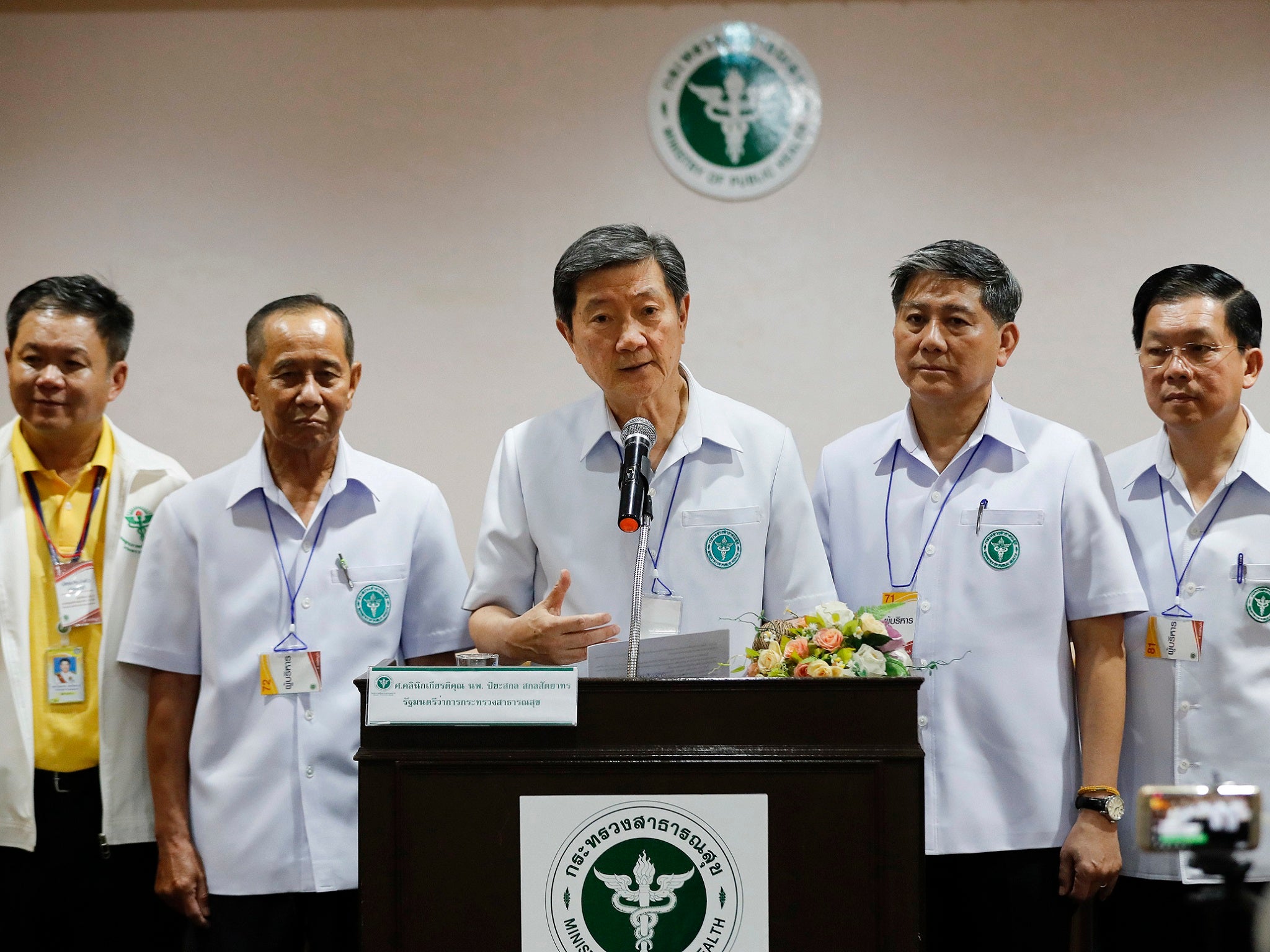Thai cave boys thank rescuers as they speak on video in hospital for the first time
British divers who found young footballers reveal they 'smelt them before they saw or heard them'
Your support helps us to tell the story
From reproductive rights to climate change to Big Tech, The Independent is on the ground when the story is developing. Whether it's investigating the financials of Elon Musk's pro-Trump PAC or producing our latest documentary, 'The A Word', which shines a light on the American women fighting for reproductive rights, we know how important it is to parse out the facts from the messaging.
At such a critical moment in US history, we need reporters on the ground. Your donation allows us to keep sending journalists to speak to both sides of the story.
The Independent is trusted by Americans across the entire political spectrum. And unlike many other quality news outlets, we choose not to lock Americans out of our reporting and analysis with paywalls. We believe quality journalism should be available to everyone, paid for by those who can afford it.
Your support makes all the difference.Twelve Thai boys rescued from a flooded cave with their football coach have thanked their rescuers, speaking out on video from their hospital beds for the first time.
In the footage, the boys appear well, sitting up in their hospital beds wearing surgical masks as they prepare to be reunited with their families within days.
“I am in good health now,” said one of the boys, a 14-year-old nicknamed Note. “Thanks for saving me.”
Thailand’s public health minister, Piyasakol Sakolsattayatorn, said the health of all 13 had improved, including those who had pneumonia, and that they would be able to go home on Thursday.
The boys, aged 11 to 16, and their 25-year-old coach, had gone into the Tham Luang cave near the border with Myanmar, intending to explore for an hour after football practice on 23 June. They ended up getting trapped after a downpour flooded their exit route.
Two volunteer British divers found them on 2 July, squatting on a mound in a flooded chamber several kilometres inside the complex.
John Volanthen and Rick Stanton told the BBC they “smelt the children before we saw or heard them”.

“Wherever there is air space, we surface, we shout, we smell,” Mr Volanthen told the BBC. “It’s a standard procedure for such rescue operations.”
All 13 were brought to safety over the course of a three-day rescue mission, organised by Thai navy Seals and an international team of cave-diving experts.
Doctors say the group, who survived by drinking water from moisture dripping from the cave walls, will still need to be closely monitored for physical and psychological effects of their ordeal after they leave hospital.
Some of the group lost as much as 11lbs, but have since regained some of the weight, and their appetites, in hospital, Mr Piyasakol said.
The boys have asked for crispy pork rice and barbecue rice, while others have said they are craving sushi.
But while the group is good health, they still face challenges.
One concern has been how they will deal with the fame, given the huge media attention both from within Thailand and beyond.
The story is already set for a retelling by Hollywood, with two production companies looking to put together films about the boys and their rescue.
The cave is also expected to become a museum, to show how the operation unfolded.
“We need to prepare both the children and their families for the attention they will receive when they come out,” Mr Piyasakol said.
He warned relatives of the boys to resist giving interviews to media over fears they could have a negative impact on their mental health.
“Everyone has worked well together to bring the children out,” Mr Piyasakol said. “We worked well together then, and we should work well together now, so the children can recover physically and mentally as they grow up.”
Reuters contributed to this report

Join our commenting forum
Join thought-provoking conversations, follow other Independent readers and see their replies
Comments